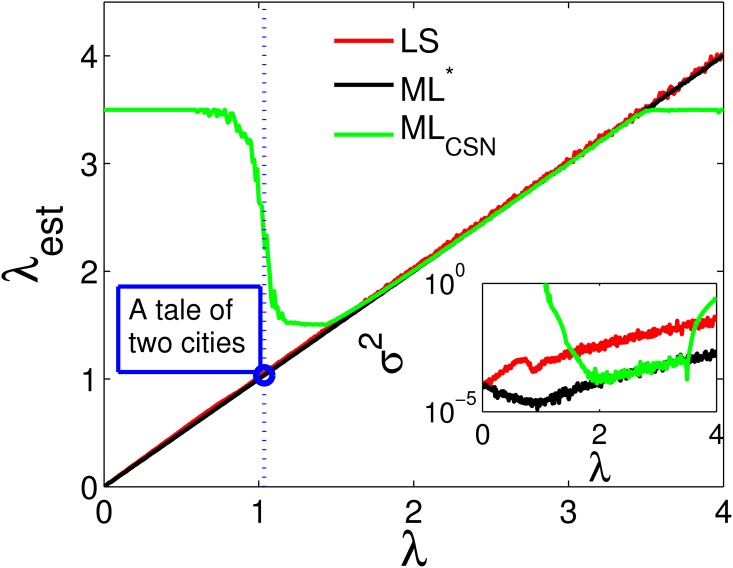Fig 3. Comparison of the three power-law exponent estimators, LS, MLCSN, and ML*.
For 400 values of λ in the range between 0 and 4, we sample N = 10,000 events from Ω = {1, ⋯, 1,000}, from a power-law probability distribution p(x|λ, Ω) ∝ x−λ. The estimated exponents λest for the estimators LS (red), the MLCSN (green, ), and the new ML* (black, λest = λ*), are plotted against the true value of the exponent λ of the probability distribution samples are drawn from. Clearly, below λ ∼ 1.5 the MLCSN estimator no longer works reliably. MLCSN and ML* work equally well in a range of 1.5 < λ < 3.5. Outside this range ML* performs consistently better than the other methods. The inset shows the mean-square error σ2 of the estimated exponents. The LS-estimator has a much higher σ2 over the entire region, than the ML*-estimator. The blue dot represents the ML* estimate for the Zipf exponent of C. Dickens’ “A tale of two cities”. Clearly, this exponent could never reliably be obtained from the rank ordered distribution using MLCSN, whereas ML* works fine even for values of λ ∼ 0.

